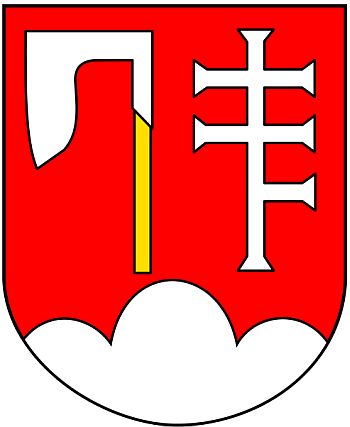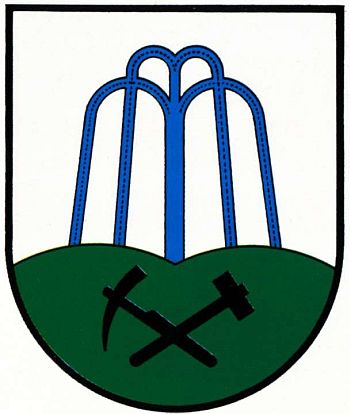Krzeszowice: Difference between revisions
Jump to navigation
Jump to search
Knorrepoes (talk | contribs) No edit summary |
Knorrepoes (talk | contribs) m (Text replacement - "====Origin/meaning====" to "===Origin/meaning===") |
||
| Line 11: | Line 11: | ||
===Origin/meaning=== | |||
The ax refers to the Tęczyńskis family, owners of Krzeszowice and the surrounding countryside. The cross is taken from the arms of the Pilawa Potocki family, owners Krzeszowic from the end of the eighteenth century, who contributed to the development of the town by investing in the spa infrastructure. The silver three hills at the base of the shield refers to the location of the town in the hills of the Tenczynek hills. | The ax refers to the Tęczyńskis family, owners of Krzeszowice and the surrounding countryside. The cross is taken from the arms of the Pilawa Potocki family, owners Krzeszowic from the end of the eighteenth century, who contributed to the development of the town by investing in the spa infrastructure. The silver three hills at the base of the shield refers to the location of the town in the hills of the Tenczynek hills. | ||
Revision as of 18:10, 22 June 2017
KRZESZOWICE
Province: Małopolska
County: Kraków
Official blazon
Origin/meaning
The ax refers to the Tęczyńskis family, owners of Krzeszowice and the surrounding countryside. The cross is taken from the arms of the Pilawa Potocki family, owners Krzeszowic from the end of the eighteenth century, who contributed to the development of the town by investing in the spa infrastructure. The silver three hills at the base of the shield refers to the location of the town in the hills of the Tenczynek hills.
The previous arms date from around 1960 and show a fountain for the spa and mine's tools for the former importance of mining.
| The arms until the 1990s. |
Contact and Support
Partners:
Your logo here ?
Contact us
© since 1995, Heraldry of the World, Ralf Hartemink 
Index of the site
Literature : Plewako and Wanag, 1994











